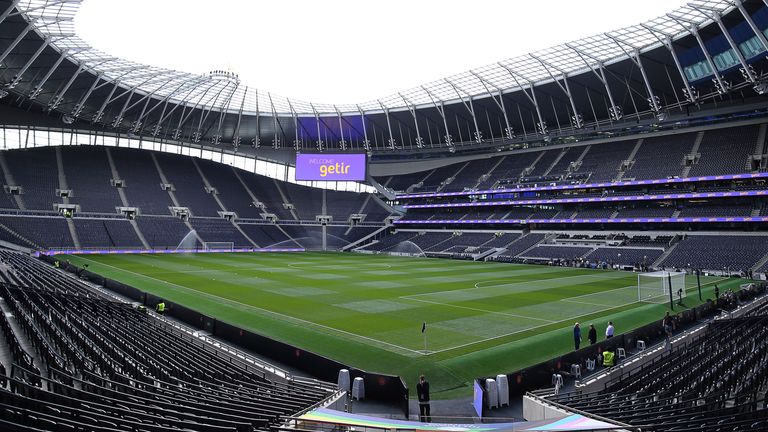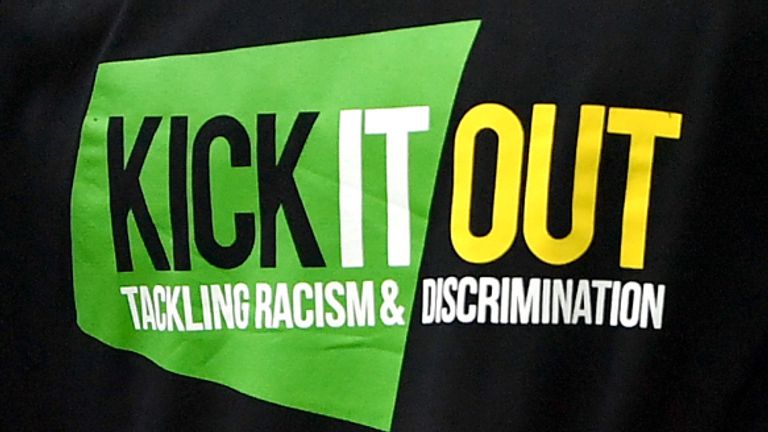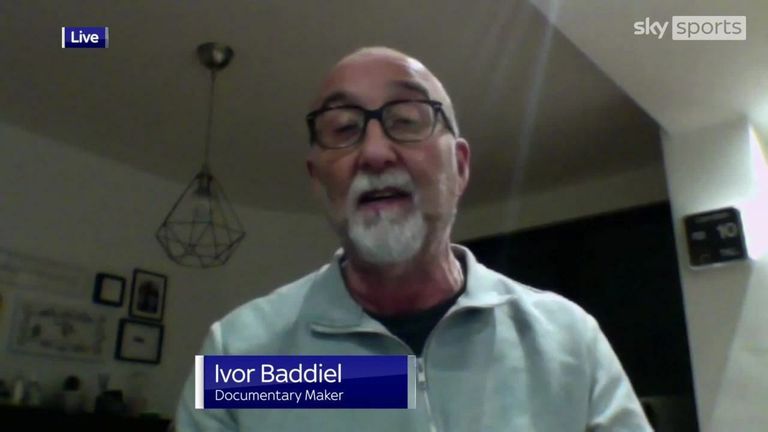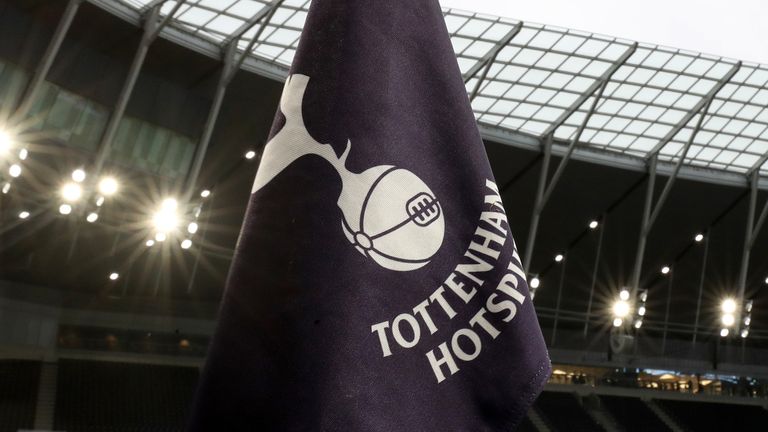Tottenham on fans' use of Y-word: 'It's time to move on'
Spurs held a review of the use of the Y-word, holding focus groups with some of the club's fanbase which concluded in the summer of 2020; "We recognise how these members of our fanbase feel and we also believe it is time to move on from associating this term with our club"
Friday 11 February 2022 18:52, UK
Tottenham have released a statement on their fans' use of the Y-word, saying that "it is time to move on" from associating the term with the club.
Spurs held a review of the use of the Y-word, holding focus groups with some of the club's fanbase which concluded in the summer of 2020.
In highlighting some of the key findings, Spurs revealed:
- Members of their fanbase feel uncomfortable with the Y-word's continued use at matches.
- Supporters who were prepared to defend their position on why they use the term expressed an openness to its use being reduced if it caused offence to fellow fans.
- Supporters, especially those of a younger generation, are often unaware of the term's meaning and its historical context when chanting it.
- That now, more than ever, is the time to re-assess and re-consider its ongoing use.
Spurs said in the statement: "We recognise how these members of our fanbase feel and we also believe it is time to move on from associating this term with our club.
"Tottenham continue to refrain from engaging with any social media handle or bio that contains the Y-word and they do not permit it being printed on shirts in any official retail outlets or used in any official club context.
"The adoption of the Y-word by our supporters from the late 1970s was a positive response to the lack of action taken by others around this issue. An increasing number of our fans now wish to see positive change again with the reduction of its use, something we welcome and shall look to support.
"We acknowledge that any reassessment of the use of this term needs to be a collaborative effort between the club and its fans. We shall be working to further outline the historical context of the term, to explain the offence it can cause and to embrace the times in which we now live to show why it can be considered inappropriate, regardless of context.
"Our supporters' use of the Y-word should never be cited as an excuse for the real evil that is antisemitism. The adoption of the term was a direct consequence of the lack of action taken in the past on this matter."
Usage of the Y-word to describe Jewish people can be considered offensive, but Spurs fans have historically adopted the word in terrace chants.
Some Tottenham supporters argue they have "reclaimed" the use of the word from rival fans, who they feel commonly used the term to insult supporters of the north London club, which has traditionally had a Jewish following.
Conte: I need to know more
Asked by Sky Sports News whether he had a message for the fans in light of Spurs' statement, manager Antonio Conte said: "I have to be honest, I don't know too much about this situation, about this topic. For this reason I prefer to have more information to give this answer to you. Sorry, but I don't have enough information to give an opinion.
"If I don't know the situation 100 per cent I risk only speaking for the sake of speaking. I need to know the topic totally and then tell my thoughts about it."
Baddiel: Confusion the problem behind removing Y-word
Ivor Baddiel, who along with brother David made a documentary called 'The Y-word' for the Kick It Out campaign in 2011, told Sky Sports News the use of the Y-word had sewn confusion among Tottenham's fanbase, given supporters could face police intervention if they used it outside of a matchday setting.
He said: "It's a complex issue but at the forefront is the terrible confusion the use of the word causes. You could be arrested for saying it out on the streets, and then walk 100m, use it in the stadium, and not be arrested.
"At its worst, there are horrendous chants from other clubs, which are absolutely abhorrent. But I would argue the confusion is such that even when singing a chant like that, people don't realise they're offending Jews, they think they're just having a go at Tottenham.
"The statement is very welcome from Tottenham and I applaud it. I think it's all about Tottenham fans and other fans taking on board what they said, thinking about it, and coming to that decision themselves.
"It's a difficult one to police, I was watching the game on Wednesday and you could hear it loudly in the stadium. I find that upsetting and annoying, but you can't ban them all or arrest them all.
"My mother was born in Nazi Germany, we lost relatives in the Holocaust. How can it not be upsetting in any context?"
His brother David went further in an interview with Sky News in February 2020 when he questioned Tottenham's right to reclaim the word, and said the link between the club and the Jewish community was "mainly mythical".
He said: "The vast majority of fans of the club, including those who self-designate as Y-words, are not Jewish and therefore have no right of 'reclamation'.
"What it will weirdly give succour to is the sense that Tottenham fans, rather than Jews, 'own' this race-hate word for Jews, a word that blackshirts painted on shops in the East End of London."
In recent years, efforts have been made to try to convince Tottenham fans to cease using the term, amid claims it is continuing to fuel antisemitism within football.
In 2013, the Football Association even warned fans that using the word could result in criminal charges.
Jewish groups have branded the word antisemitic, whatever the context it is used in.
Antisemitism: record number of incidents recorded in 2021
A record number of antisemitic incidents were recorded in 2021, ranging from abuse to GBH and threats to kill.
The Community Service Trust (CST), a charity that collects data on anti-Jewish abuse, recorded 2,255 incidents in 2021, up by 34% from 1,684 in 2020.
The figures include 176 violent incidents, three of which involved grievous bodily harm (GBH) or a threat to life.
Mark Gardner, CST chief executive, said: "These record levels of anti-Jewish racism, reported by our Jewish community to CST and police, show how difficult last year was for Jews across Britain."
The charity said antisemitic incidents rose by a third (33%) in Greater London, while Greater Manchester saw an 86% increase.
Nationally, across the whole year, there were 502 incidents that used far-right or Nazi themes, including 90 where the Holocaust was celebrated.
The number of hate incidents involving schools hit 182, the most reported in any year and up from 54 in 2020, with 99 involving pupils or staff at non-faith schools, up from 14 in 2020.







